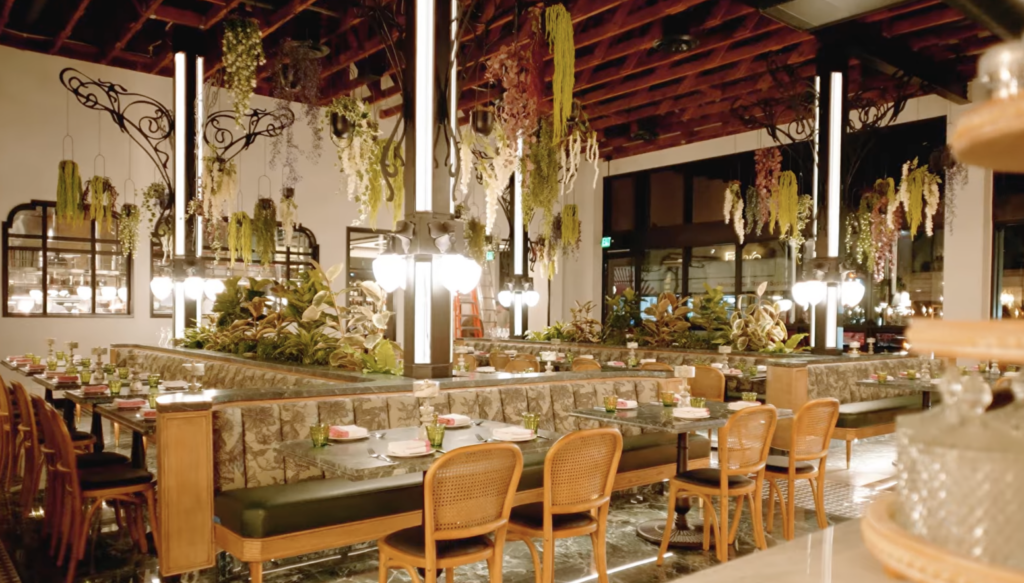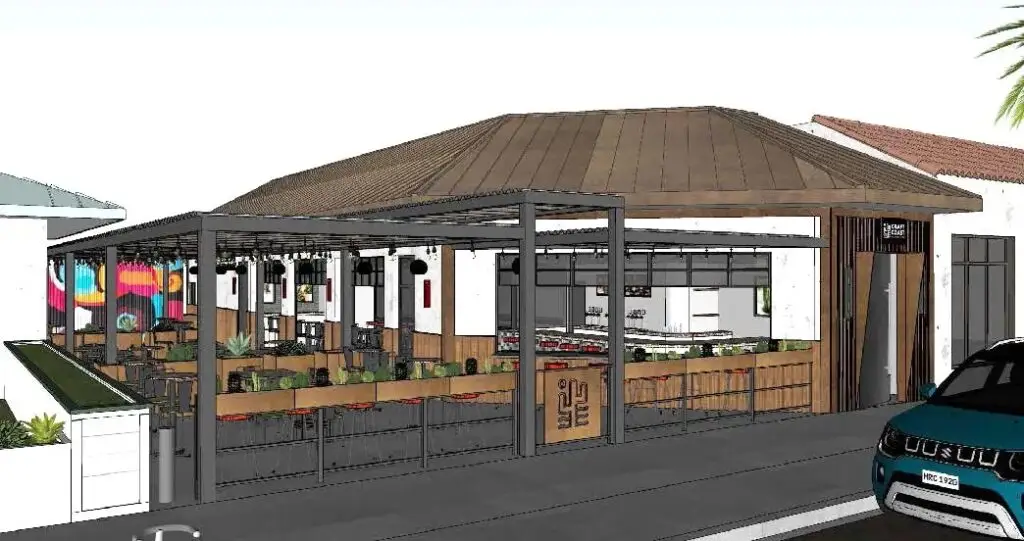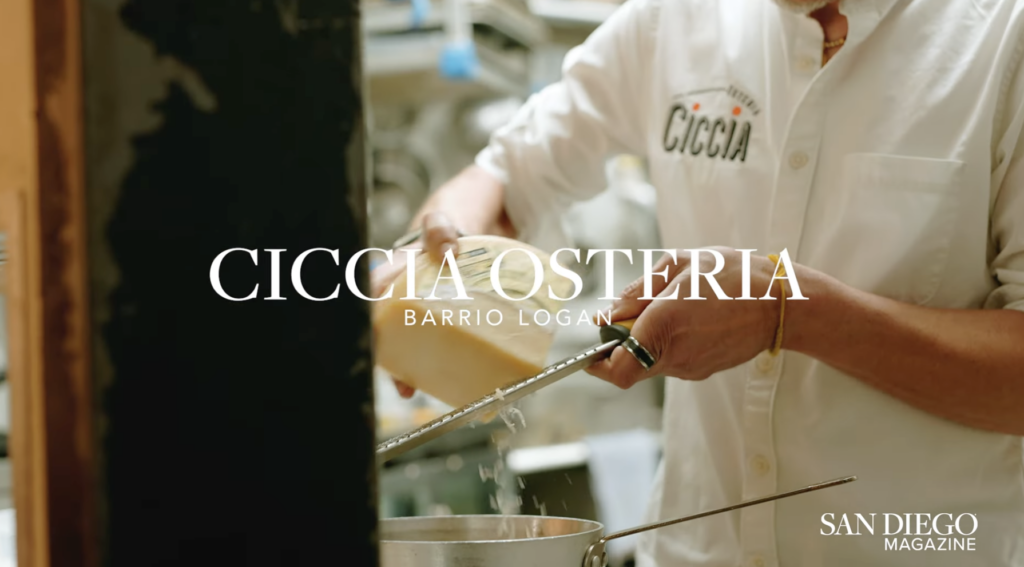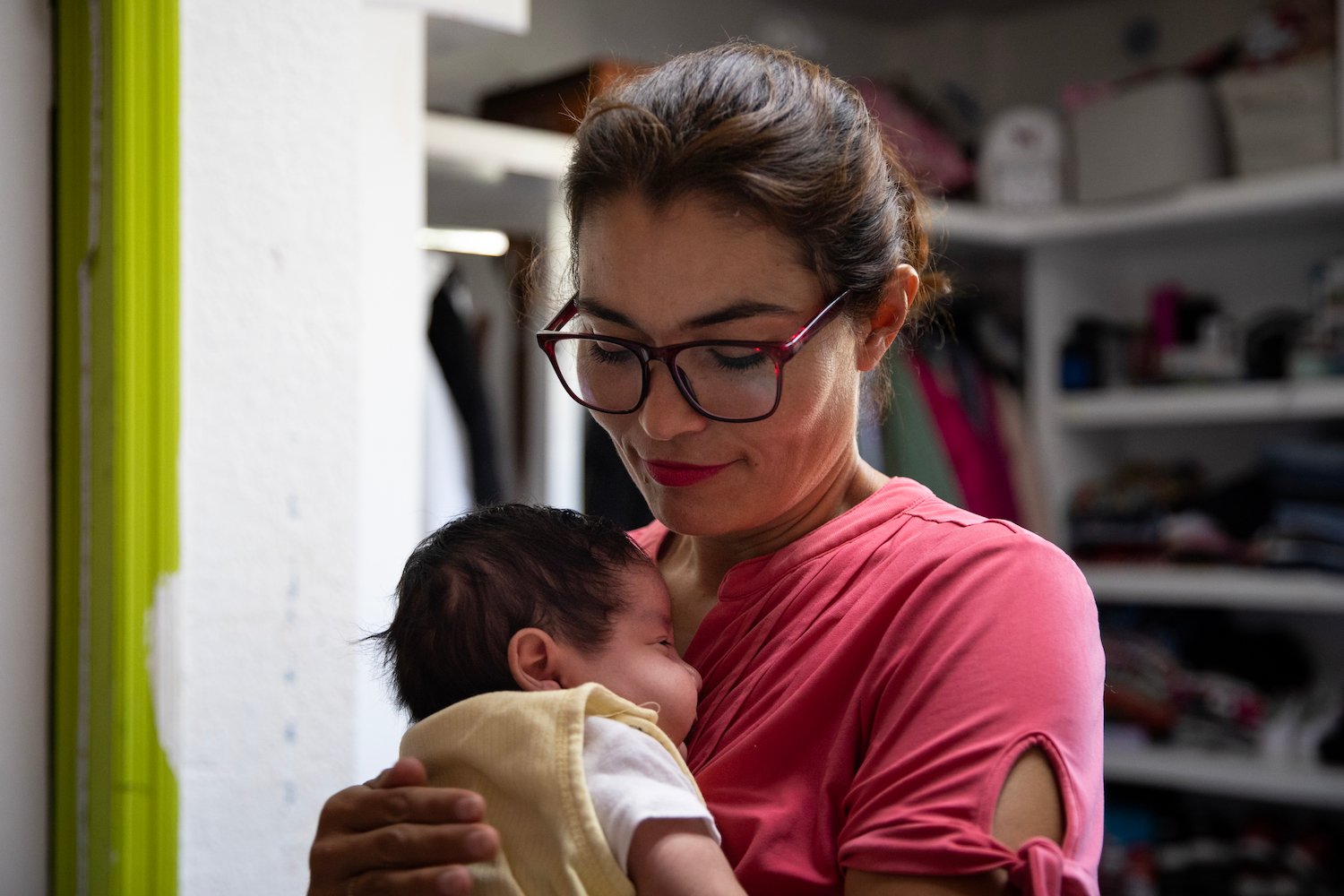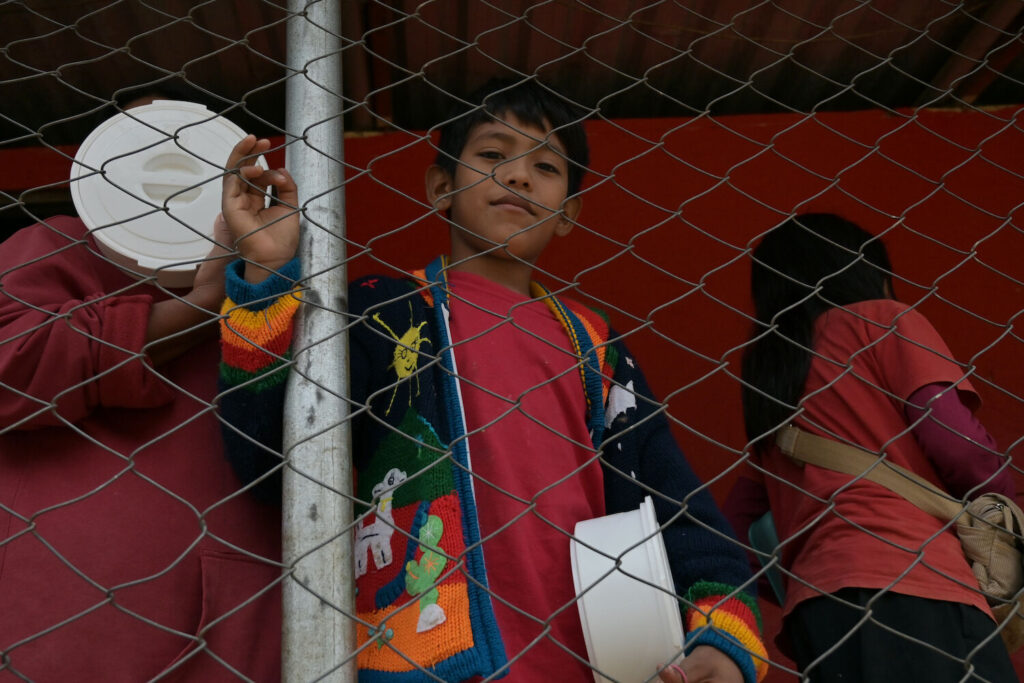A handful of teenage girls share this bedroom. Posters of their favorite singers and notes from their friends paper the walls, and piles of stuffed animals populate the beds. One girl sits quietly at the vanity, brushing her hair and touching up her makeup. Juana Ortiz, her legal guardian, mentions how pretty she looks. The room is dimly lit, a curtain gently blowing in the Tijuana breeze. It’s a sleepy afternoon at Eunime—a rarity with 20 young residents.
The kids at Eunime Por Tijuana orphanage are just like other children. Their deep belly laughs, sweaty games of street soccer, and ambitions and dreams for the future are the same. However, one difference sets them apart: Most of the kids at Eunime are HIV-positive.
Just a few miles south of the San Diego-Tijuana border crossing and framed by a rainbow fence, Eunime serves as a safe haven, providing orphaned children the necessary medical care and resources to live a life as unaffected by their diagnosis as possible. Founder Juana Ortiz started Eunime 20 years ago in honor of her sisters Eunice and Noemi, who, according to Juana, were among the earliest diagnosed cases of HIV/AIDS in Tijuana. Ortiz now serves as the general director.
“Eunice did not have the opportunity to receive treatment and be in good health,” Ortiz explains in Spanish. “It is in her memory that we do our best to give attention to all children that may need it.”
While Ortiz and I talk, I hold a 22-day-old baby, still unnamed, in my arms. His fate remains unknown, as the bloodwork that will determine his status hasn’t come back yet. His mother is HIV-positive and doesn’t regularly take her medicine. After he was surrendered at a local hospital, the hospital reached out to the National System for Integral Family Development, which contacted Ortiz for placement help. The baby’s eyes, big and brown, catch mine. He gurgles contentedly and falls back asleep, nestled in my chest.
“Do you think Sebastian fits him?” Ortiz coos, pinching his fat tummy.
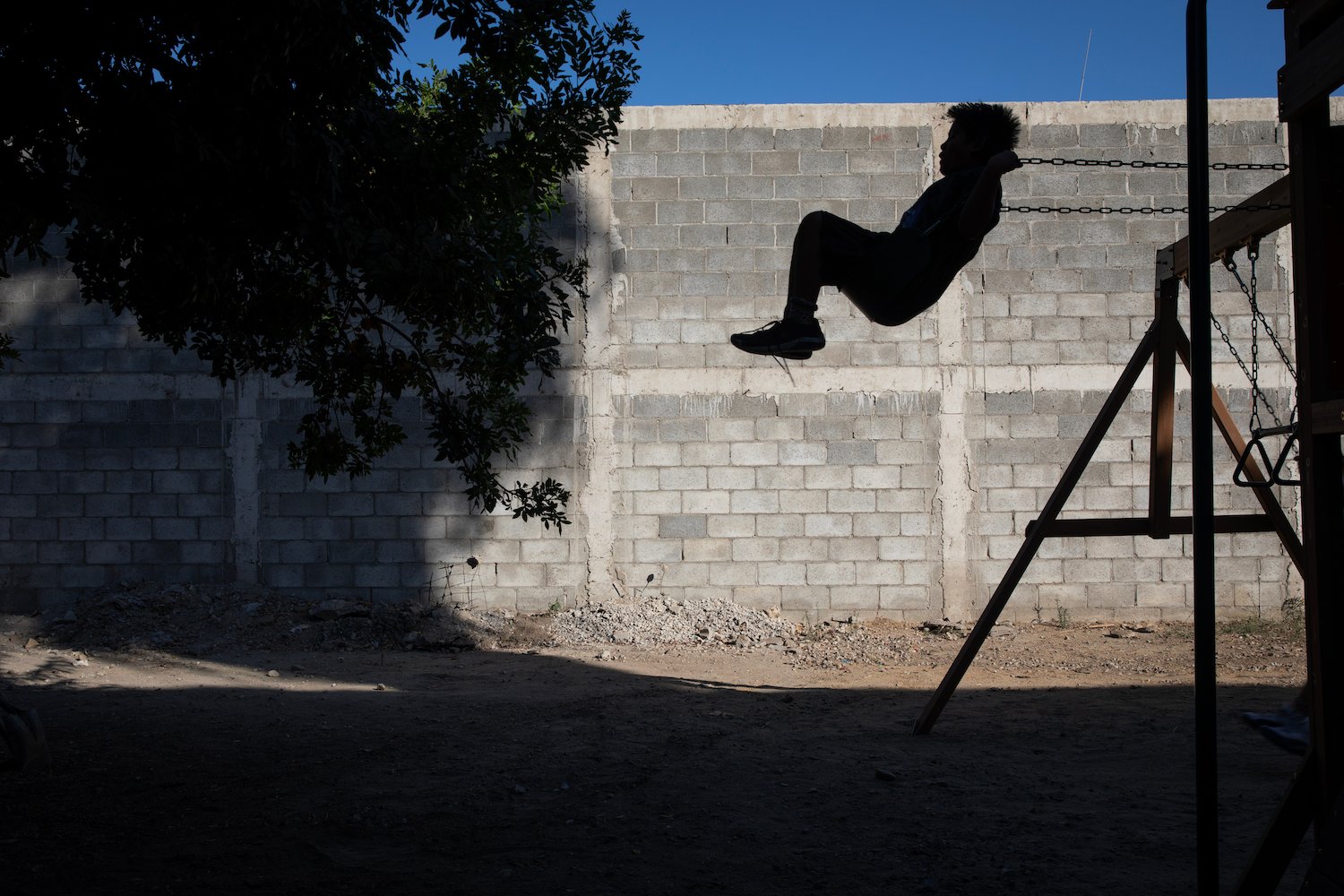
A child swings on a new playset, courtesy of a recent donation.
“I do,” I reply, trying to swallow the growing lump in my throat. Ortiz and I walk to the abandoned lot next door which, thanks to a recent donation, now contains a playset. The children flock around her with their incessant chirps of Juana, Juanita, Ma.
A little boy swings on the new playset, pumping his legs with all his might to achieve the highest possible arc. The other residents race under him, nearly keeled over with laughter, trying to avoid colliding with the pendulum.
Despite support from donations and government assistance, Eunime is increasingly more expensive to run. Ortiz cites the increased minimum wage and decreased government support following the pandemic as financial stressors.
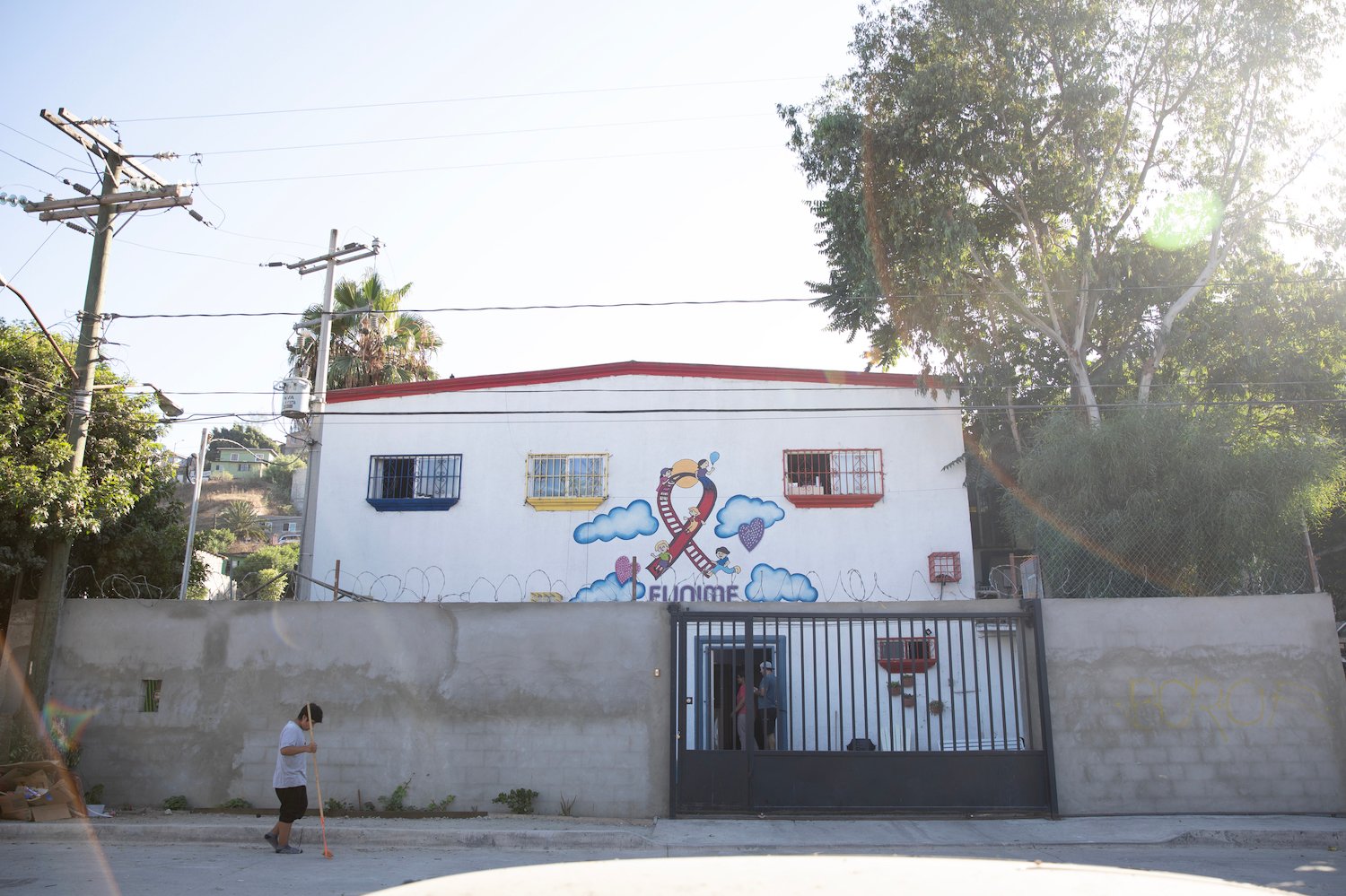
“We are operating with 70 percent of what we need,” she says. A rotating staff of caretakers and volunteers allow for around-the-clock care and supervision. Between looking after newborn babies, doing laundry for 20, helping with homework, and distributing the children’s medicine, there is never a dull moment.
Once, Ortiz tells me, the kids managed to sneak around 20 dogs into the orphanage, moving the pups from room to room trying to avoid her, hoping she wouldn’t hear the pack.
“We have to have some sort of rule in place,” she laughs. “There can’t be more dogs than kids.”
Since 2004, nearly 70 children have called Eunime home. Eight have been adopted; the rest have grown up entirely under Juana’s wing.
“We will never match the attention [a child can get from an adoptive] family,” Ortiz says. “So we feel deeply grateful that God may grant them the opportunity to have a family.”
Ortiz works closely with the kids to create a life plan for when they age out of the orphanage at 18. Residents have gone straight from Eunime into university. Others have joined the workforce or started their own families.
PARTNER CONTENT
Ortiz motions to a wall of photos in the waiting room. Alongside images of her sisters are records of all her residents’ young lives, from baby pictures to middle school sports team shots to college graduation photos.
“Here, we are a big family,” she says.
